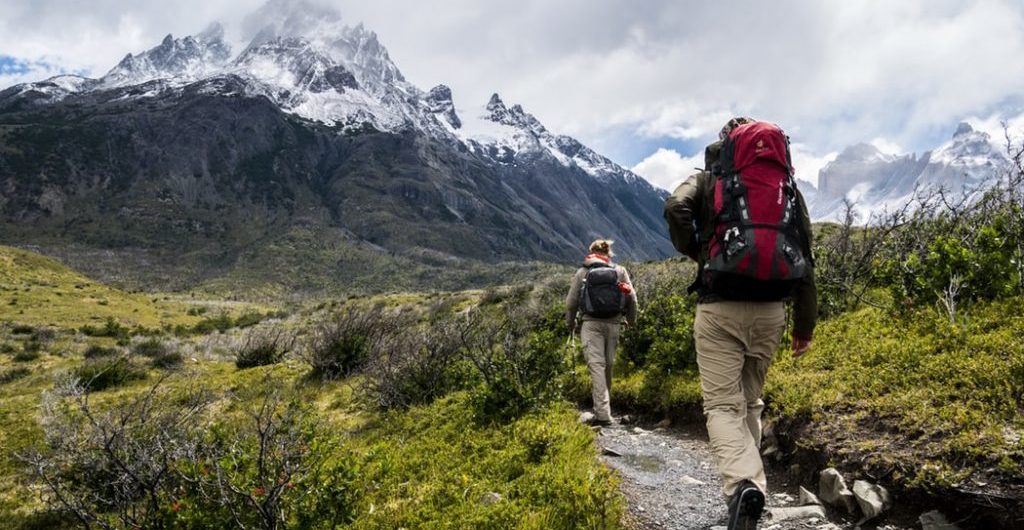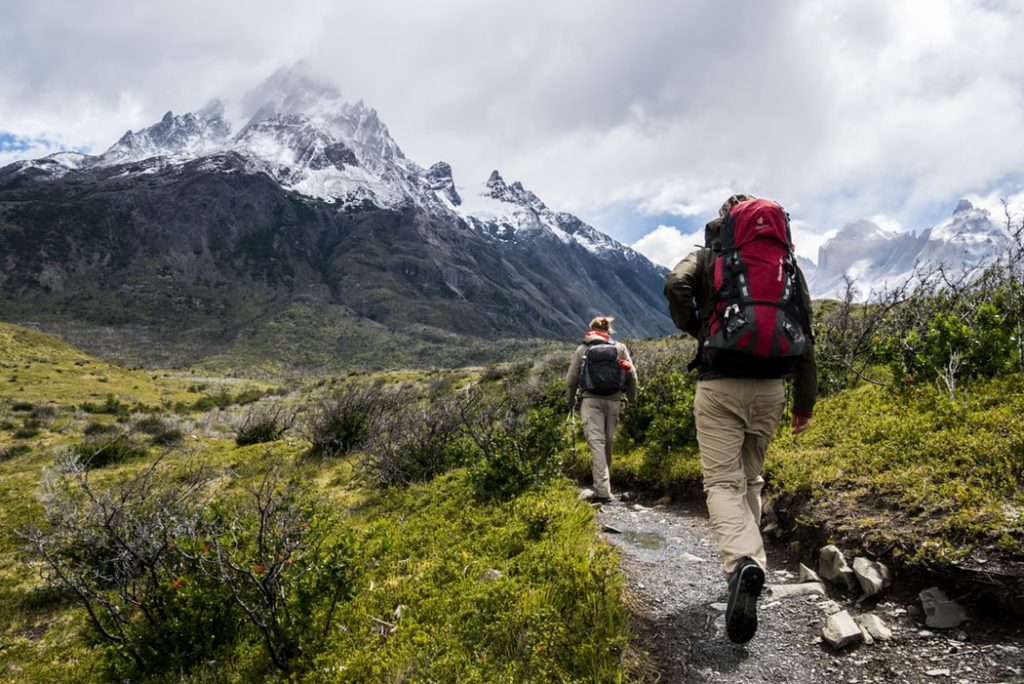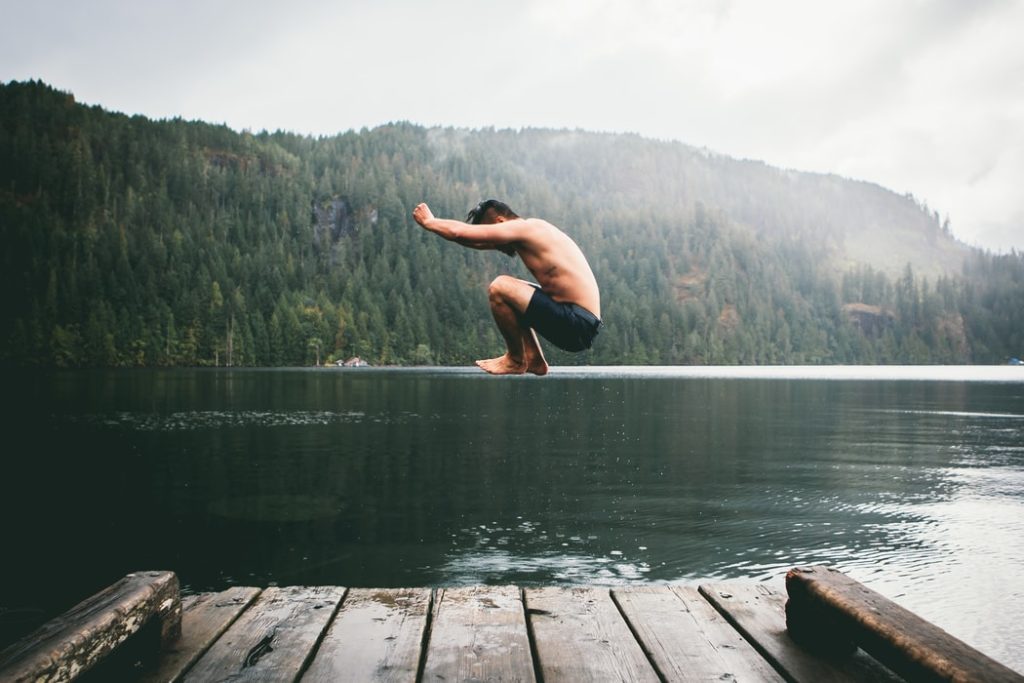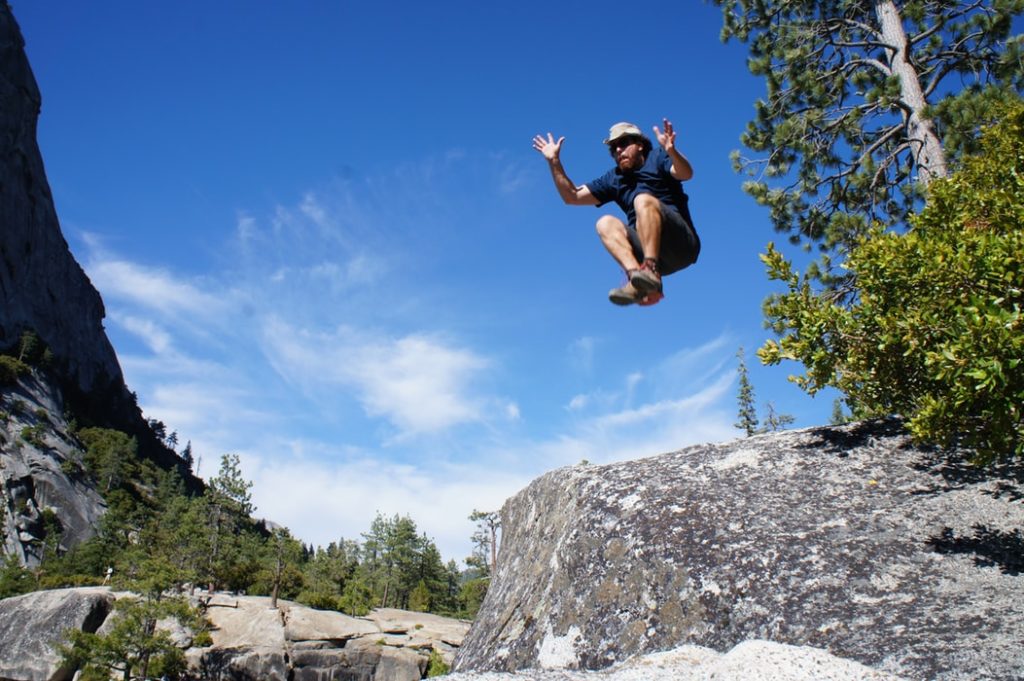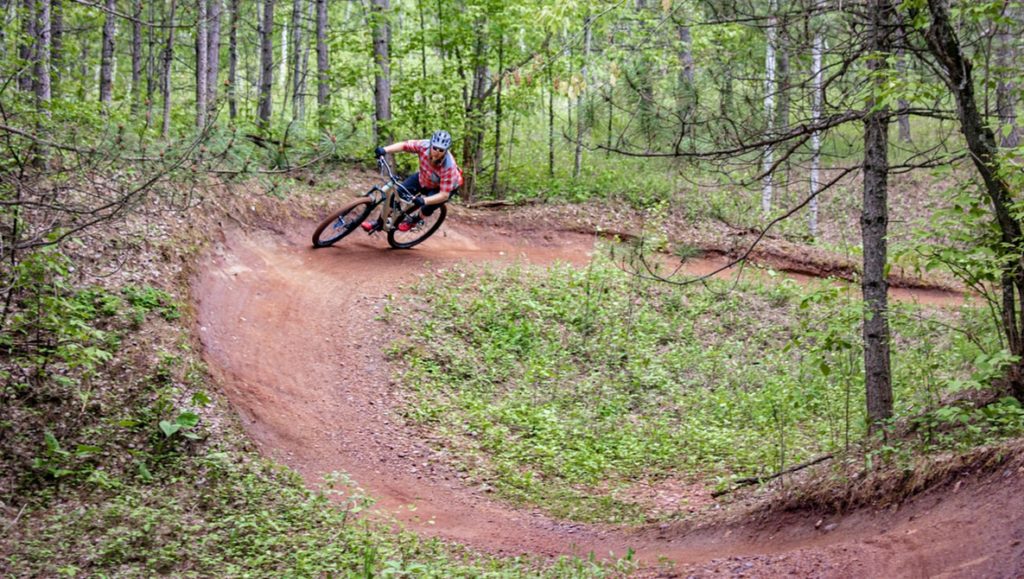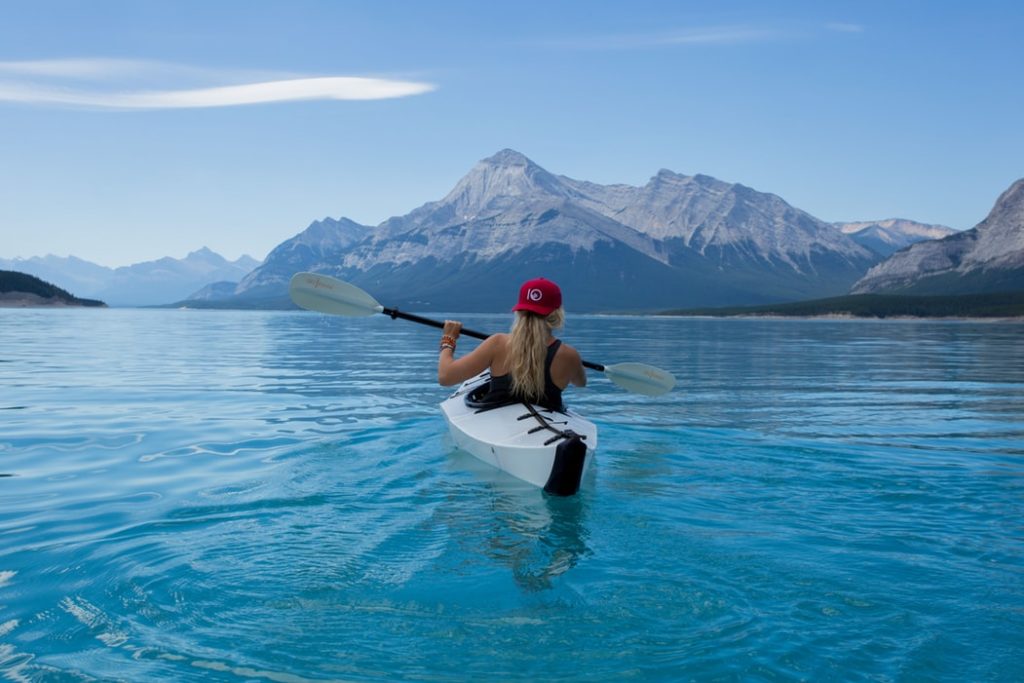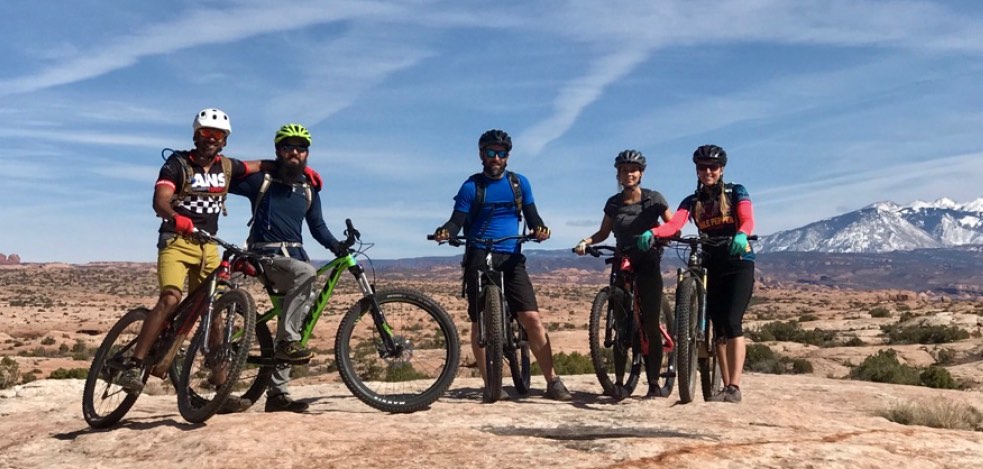If you’re a self-professed homebody, you could seriously benefit from a change of scenery. Spending time in nature could improve your physical and mental health, ward off illness, and actually make you happier! As the Father of Western Medicine, Hippocrates, once said, “Nature itself is the best physician.” If you’re curious about the health benefits you can reap from being outside, read on! Below, we cover 13 reasons to soak up everything nature has to offer. Read on for the best benefits of getting outdoors.
1. BEING IN NATURE BOOSTS LIFE SATISFACTION
If you’ve been feeling blue, visit somewhere green! A recent study found that men and women who spent just 20 minutes in a park setting reported a 64% hike in life satisfaction. (hike- HA, see what we did there?)
The best news? Participants’ satisfaction levels had nothing to do with physical activity! Simply visiting the park boosted well-being. Of course, movement adds a plethora of additional health benefits.
2. SOAKING UP THE SUN ELEVATES VITAMIN D LEVELS
Regular sun exposure is the best source of vitamin D. An estimated 40% of U.S. men and women are vitamin D deficient, which can lead to some pretty scary health implications, including depression, cancer, and osteoporosis.
Penciling in your time outside around midday is ideal, especially if you’re short on time, as UVB rays reach their peak around noon. Exposure later in the day has been linked to skin cancer.
3. SPENDING TIME OUTDOORS MAY LOWER BLOOD PRESSURE
Sunlight does so much more than boost vitamin D levels… It can actually lower your blood pressure! Researchers report that the nitric oxide present in the skin responds to the sun’s rays by widening blood vessels, resulting in lower blood pressure.
Although study participants whose blood pressure was in the normal range noticed a minimal drop, it’s believed that folks with high blood pressure would likely experience a more significant change.
4. OUTDOOR TIME CAN REDUCE INFLAMMATION
Inflammation has been linked to a host of health problems, from autoimmune disorders to depression and even cancer. Various studies have shown that spending time in green spaces reduces inflammation.
Men and women of all ages can benefit from this natural inflammation-buster. From healthy, college-aged males to elderly patients, there was a marked difference in inflammation among individuals who spent time in the forest.
5. BEING OUTSIDE IS GOOD FOR EYESIGHT
Surprisingly, spending time outdoors in childhood could lead to better vision later in life. A recent Canadian study found that spending time in nature greatly reduces the risk of myopia, more commonly known as nearsightedness.
Believe it or not, one-third of U.S. adults experience myopia, and one key contributor is a lack of outdoor time in childhood. If you have children, encourage them to spend time outdoors daily to preserve their vision later on. It’s easier than getting them to eat carrots right?
6. OUTDOOR TIME IMPROVES SLEEP
Struggling to snooze? Going outdoors could improve your quality of sleep, according to Stanford Medicine. It seems that increasing the amount of time an individual spends outside helps to regulate body temperature, along with the sleep-wake cycle, otherwise known as the circadian rhythm.
While spending time in nature could lead to better sleep for people of all ages, the benefits seem to be most notable for men over the age of 65.
7. BEING OUTDOORS BURNS MORE CALORIES
Whether you venture outside to relax or workout, you’ll burn more calories than if you had stayed inside. While outdoors, the body works hard to balance CO2 levels and consume oxygen, both of which require more energy, leading to a higher calorie burn.
Outdoor workouts are particularly effective because the body must constantly adapt to the terrain. Plus, outdoor fitness tends to be more enjoyable, so you’re more likely to stick to a routine.
8. SPENDING TIME OUTSIDE INCREASES HAPPINESS
It probably comes as no surprise that outdoor time can have a positive effect on mood. In an interview with National Geographic, author Florence Williams discussed an experiment she conducted to track her own happiness over a one-year period. In addition to spending time with friends, vacationing, and listening to music, Williams discovered that being outdoors made her incredibly happy.
The boost in mood from being outside may be due, in part, to nature’s ability to zap anxiety and ruminating thoughts. A 2015 study published by Science Direct found that folks who walked in a wooded area reported a better emotional state when compared to study participants who walked in an urban location. If you live in a city, try to schedule regular trips to green areas for mood-lifting benefits.
9. NATURE RELIEVES STRESS, ANXIETY, AND DEPRESSION
One of the best remedies for stress, anxiety, and other mental health concerns is spending time in nature. According to NBC News, “forest bathing” is a Japanese practice that has caught on here in the States. To begin your own practice, simply spend time in a forest or wooded area regularly.
So, how exactly does becoming one with nature lead to improved mental health? Studies show that walking in a green environment lowers the stress hormone cortisol. While cortisol is vital for optimal mental and physical health, elevated levels have been linked to a menagerie of health problems, including anxiety, depression, memory and concentration problems, and even sleep disorders.
10. OUTDOOR TIME RELIEVES PAIN NATURALLY
Exposure to nature may be the best medicine for healing and pain relief. Research indicates that patients who undergo surgery experience quicker recovery and don’t require as much pain relief when exposed to green spaces.
In addition to recovery from surgical procedures, “green exercise,” or exercising in nature, is suggested for chronic pain sufferers.
11. SPENDING TIME IN GREEN SPACES BOOSTS IMMUNITY
If you’re prone to illness, getting outdoors may help. Research suggests that spending time in nature wards off everything from diabetes and ADHD to cardiovascular disease and cancer. This is largely due to the relaxed state that nature promotes.
Forests are particularly beneficial for the immune system, as plants produce phytoncides, which have been shown to increase natural killer cells—a type of white blood cell in humans. Plus, sun exposure strengthens infection-fighting T cells.
12. TIME OUTDOORS INCREASES SOCIAL INTERACTIONS
As humans, we’re social creatures who need regular interaction with others. Spending time outdoors is a great way to connect with other people, whether it’s at the local dog park, beach, or sports field.
According to Psychology Today, an active social life boosts feelings of well-being, as well as the immune system. Social interaction is also great for brain health, and can even ward off dementia. Plus, social folks tend to live longer! But really, we don’t need a study to tell us that we’re much more interactive when we’re not on our phones.
13. THE GREAT OUTDOORS GENERATES CREATIVITY
It’s not a fluke that the best ideas come to us when we’re in a relaxed state. A great way to promote creativity is by unplugging and enjoying time in nature. The key is disconnecting from technology, including social media, and giving your mind a much-needed respite.
In everyday life, most individuals are on a constant mission to accomplish as much as possible, resulting in decreased focus. Thankfully, it seems nature has the ability to restore attention, which can lead to improved creativity.
In fact, most of our ideas for TripOutside come from being on a hike and not from trying to force new concepts on the whiteboard.
HOW MUCH OUTDOOR TIME IS ENOUGH?
Science suggests that spending 120 minutes in nature each week is ideal for optimal health and well-being. While getting outside daily could undoubtedly make you feel better, researchers note that the recommended two hours per week doesn’t have to be divvied up evenly. That’s great news for folks who live in urban areas, have limited access to nature, and those with hectic schedules. Whether you venture outdoors one day per week or seven, you’ll reap the rewards.
TIPS FOR OPTIMIZING YOUR OUTDOOR TIME—AND STAYING SAFE
We’d be remiss not to mention a few tried-and-true tips for enhancing your outdoor adventures and keeping yourself safe:
- Know where to go: Although there is so much information available, it can link to analysis paralysis on where to go. We love apps like AllTrails that can help you find the closest hike or outdoor activity to you and filter by distance, how strenuous it is and read reviews from others.
- Dress for the weather: Check the forecast before venturing out, and be prepared for possible weather conditions, such as rain or snow.
- Wear sunscreen: Broad-spectrum sunscreen is a must, whether it’s bright and sunny or cloudy and gray. If you’ll be physically active or in water, opt for sweat and water-resistant protection.
- Stay hydrated: Be sure to tote along plenty of water and a snack, along with a meal if you’ll be off the grid for an extended period of time.
- Check-in with loved ones: Before making your way to the park or forest, let your loved ones know exactly where you’ll be, as cell reception may be spotty.
Venturing outside on a regular basis will undoubtedly have positive short-term and long-term effects on your overall health and well-being. While you’ll likely notice an immediate difference in your mood and energy level, consider keeping a written record of your outdoor adventures and any changes in your health, as many benefits tend to occur gradually.
Most importantly, enjoy your time away from the daily grind!
Ps: We also hope that by spending time outside, we’ll all appreciate nature more and work towards preserving it for future generations.
Original article here.
ABOUT THE AUTHOR
 Julie Singh is passionate about outdoor adventure, wildlife and conservation. She spends her free time mountain biking, hiking, paddleboarding, and snowboarding, and she also loves to challenge herself with new outdoor adventures. Julie spent 15 years in Retail, Merchandising and Finance, leading teams and growing large businesses before she co-founded TripOutside with her husband Reet.
Julie Singh is passionate about outdoor adventure, wildlife and conservation. She spends her free time mountain biking, hiking, paddleboarding, and snowboarding, and she also loves to challenge herself with new outdoor adventures. Julie spent 15 years in Retail, Merchandising and Finance, leading teams and growing large businesses before she co-founded TripOutside with her husband Reet.


